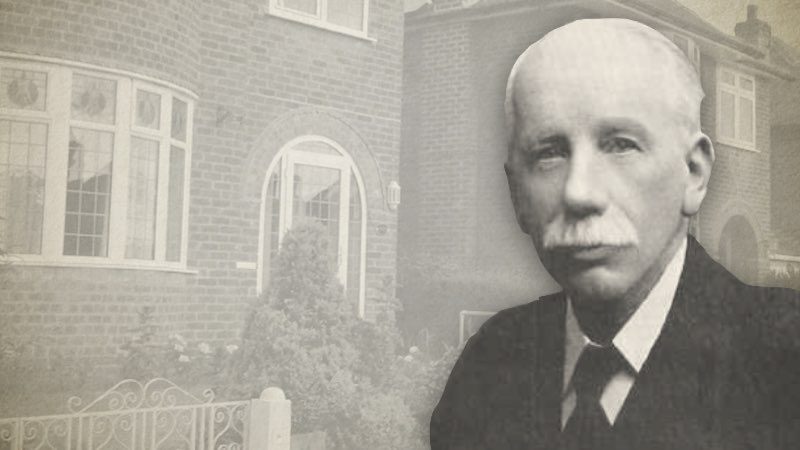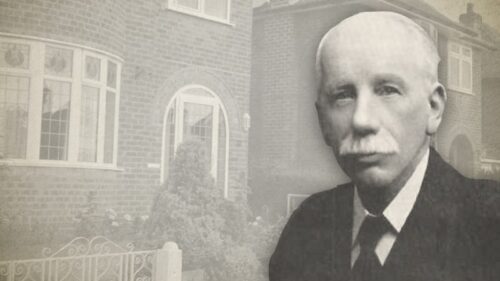John E. Hazelton
John E. Hazelton (1924) was a Strict and Particular Baptist preacher. He was the son of John Hazelton (1822-1888). He was appointed the Pastor of Streatley Hall, London.
John E. Hazelton Sermons
John E. Hazelton's "Hold-Fast" (Complete)
John E. Hazelton's Declaration Of Faith (Complete)
-
Chapter 1: Sovereign Grace
“The Dawn of the Reformation” John Wycliff Sending Out A Band Of His Poor Preachers “For by grace are ye saved through faith; and that not of yourselves: it is the gift of God: not of works, lest any man should boast.”—Ephesians 2:8,9 In the crowded synagogue of Capernaum the Lord Jesus Christ, addressing many who had eagerly followed Him because of His miracles, declared, “Therefore said I unto you, that no man can come unto Me, except it were given him of My Father.” Immediately the enmity to the truth of God which is latent in every unrenewed hearted was deeply stirred; for, “From that time many of His disciples went back, and walked no more with Him.” “Will ye also go away?” was…
-
Chapter 2: The Reformers
The River Swift, And Church, Lutterworth “The sword of the Spirit, which is the Word of God.”—Ephesians 6:17 The peaceful little Leicestershire town of Lutterworth, situated in the midst of beautiful pasture lands, has no more prominent object than its noble Church, the tower of which is visible for miles round. To it many travelers wend their way that they may look upon a place which will ever be association with John Wycliff, who in the fourteenth century was so eminent a patriot and above all so great a spiritual benefactor to his country by his translation of the Bible into the English tongue, multiplying the copies with the aid of transcribers, and by his “poor priests” in their russet gowns recommending it to the…
-
Chapter 3: The Puritans
“In doctrine shewing incorruptness, gravity, sincerity.”—Titus 2:7 The seventeenth century is the era of the Puritans, who have left behind them a vast mass of theology which is the common property of the Church of Christ; the neglect into which their writings have fallen is an unmistakeable token of spiritual degeneracy, for the absence of their works from a minister’s shelves can be compensated neither by Fathers, nor Reformers, nor by the ephemeral and often unscriptural religious literature of the day. It may be at once admitted that many of their works are over-cumbered by references to works little known and altogether unread; but in the best there are experience, unction, warmth; not only truth grasped and wrought out by great minds, but realized by…
-
Chapter 4: The Eighteenth Century
"Thus saith the Lord God, Behold, I am against the shepherds; and I will require My flock at their hand, and cause them to cease from feeding the flock; neither shall the shepherds feed themselves any more; for I will deliver My flock from their mouth, that they may not be meat for them."—Ezekiel 34:10 After the death of Oliver Cromwell nothing but God's mercy prevented the re-establishment of Popery, and but for the faithfulness of the Nonconformists in the time of James II it would, in all human probability, have been restored. Political Protestantism prevailed, and in 1688, under William III, became firmly established. But truth languished. Ministers of the school of Burnet and Tillotson could not preach the Gospel of the grace of…
-
Chapter 5: The Church of England
"Mine eyes shall be upon the faithful of the land, that they may dwell with Me.”—Psalm 101:6 This and the following chapters are designed to give a sketch of some of the most noteworthy and useful of the exponents of the doctrines of grace during the nineteenth century; a few named did most of their work during the latter part of the preceding century, but, as they did not pass away till the earlier years of the nineteenth, they are included in these chapters. John Newton (1725-1807) claims the first place. John Newton He was Rector of St. Mary Woolnoth Church, Lombard Street, to which benefice he was appointed by his friend Mr. Thornton. He at first resided in Charles Square, Hoxton; afterwards he removed…
-
Chapter 6: The Independents
"And ye shall know the truth, and the truth shall make you free."—John 8:32 William Huntington (1743-1813) must occupy the first place in this chapter in order of time and reach of influence. He was born in the Weald of Kent, between Goudhurst and Cranbrook, his mother being the wife of a day labourer working for seven or eight shillings weekly in the winter, and in the summer for nine shillings per week. He learned to spell and read and write a little, and this constituted his educational equipment for the battle of life. He walked in evil paths, and at one period of his life used to unload coals from the barges at Thames Ditton; hence the title "Coalheaver." His autobiography is contained in…


